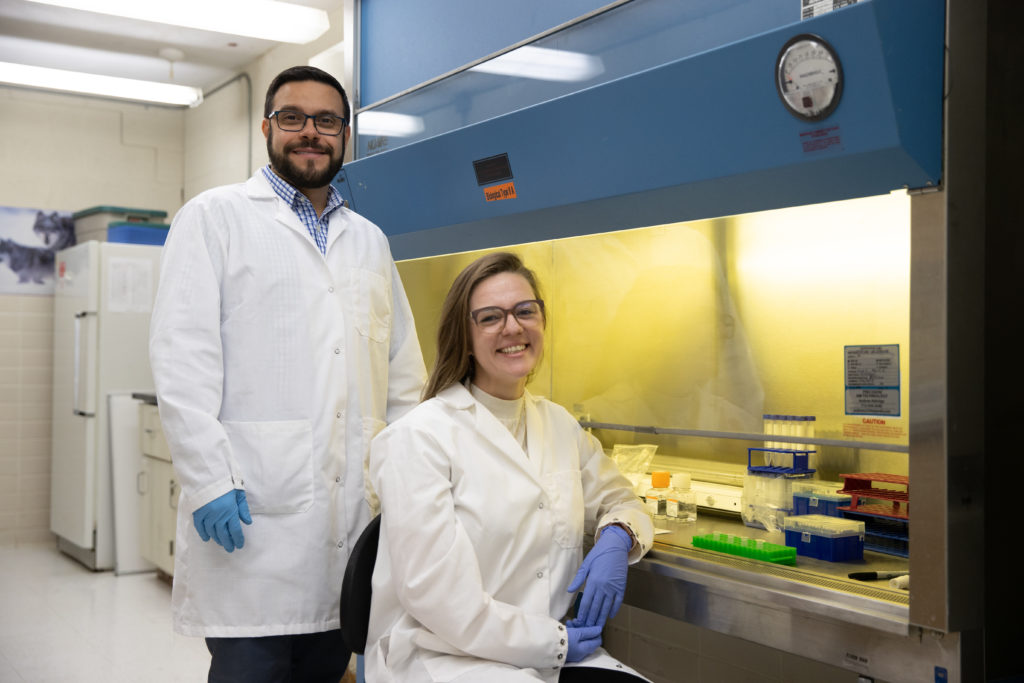Check out the most recent publication from the Verocai Lab on Thelazia californiensis, or what is commonly known as “the Californian eyeworm”.
Livestock Guardian Dogs and Parasites
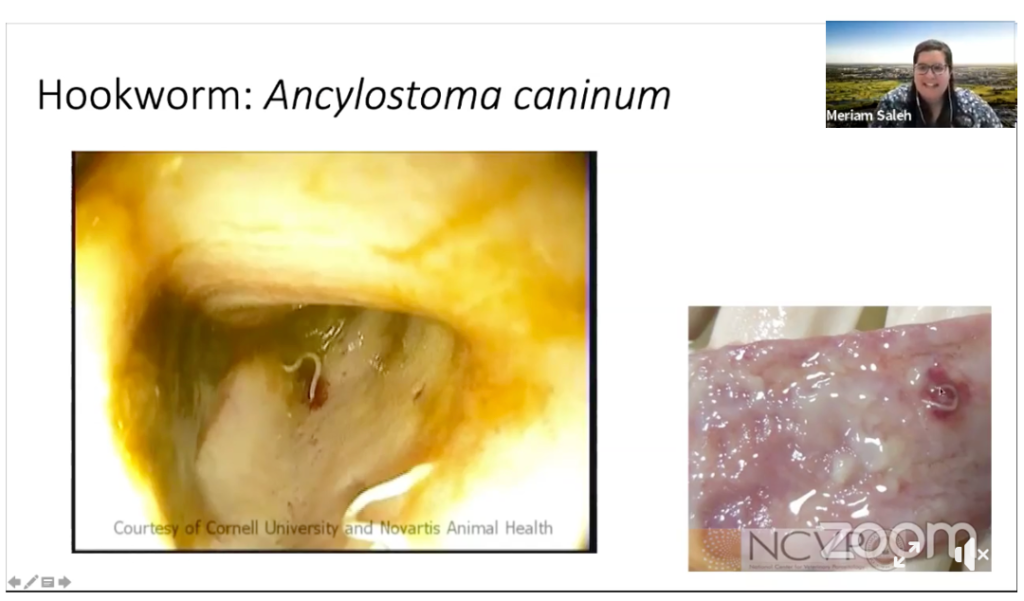
Recently Dr. Meriam Saleh was invited to share her parasitology expertise with members of the Livestock Guardian Dog Program at the Texas A&M AgriLife Research and Extension Center in San Angelo, TX. She presented a webinar on common intestinal parasites that can infect livestock guardian dogs. Producers from across the United States were able to attend the one-hour session and learn more about how dogs are infected with these parasites and how to prevent them in their livestock guardian dogs. To learn more about the Livestock Guardian Dog Program you can check out their website.
Welcome Dr. Meriam Saleh!
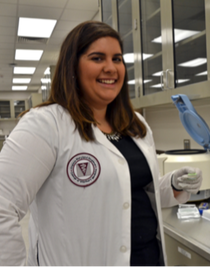
The Verocai Lab would like to welcome new postdoctoral researcher Dr. Meriam Saleh. Prior to joining the lab she served as a lecturer in the Department of Veterinary Pathobiology at Oklahoma State University and project leader for the National Center for Veterinary Parasitology. Dr. Saleh completed a two-year postdoctoral fellowship focused on ticks, their geographic disruption, and tick-borne diseases at Oklahoma State University. Originally from east Tennessee, she earned a BS in Animal Science from the University of Tennessee in 2011 and a PhD in Veterinary Parasitology from Virginia Tech in 2017. Dr. Saleh is fascinated by zoonotic parasites and loves teaching students in the laboratory. She is also an active member of the American Association of Veterinary Parasitologists. In her spare time Meriam enjoys spending time with her husband Chris and their two dogs Blue and Bella. They frequently are on the search for rare birds and enjoy traveling and exploring natural parks. Although while Chris is bird watching Meriam keeps an eye out for ticks.
Coyotes Are a Probable Reservoir for Onchocerca lupi

O. lupi, a filarial nematode parasite, is an emerging infectious threat in southwestern United States to both domestic animals and humans. Relatively little is known about the parasite’s epidemiology, including what role wild canids (e.g., coyotes) could play in transmission. Check out the Verocai’s Lab most recent paper to learn more about the surveillance of O. lupi in coyotes!
Congratulations Nathalia!

We want to thank and wish the very best to Nathalia Nguyen! Nathalia has been an important part of the Verocai Lab for the past year and she is graduating with her bachelors degree in biomedical sciences. She now plans to work as a veterinary technician as she applies to veterinary school. We hope for the very best as she embarks on her new journey!
Welcome Matthew Kulpa!
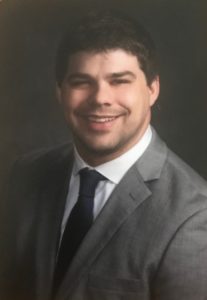
The Verocai Lab would like to welcome new PhD student Matthew Kulpa to the research team! Matt recently graduated from veterinary school at Michigan State University and his research interests align at the intersection of wildlife disease, parasitology, and public health. In particular, he will be focusing on filarial parasite diversity and distribution and their effect on wildlife/human populations in North America. More information about his research interests and personal adventures can be found at his personal website: https://kulpamat.wixsite.com/matthewkulpa
New NCVP resident comes to TAMU’s Verocai Lab!
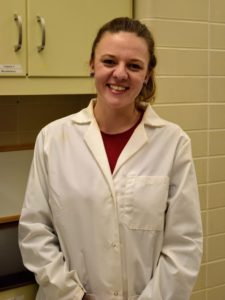

Caroline Sobotyk de Oliveira DVM, MSc, PhD, the Merck Resident in Veterinary Parasitology, will be completing research and clinical training toward board certification in parasitology under the direction of Dr. Gui Verocai (DACVM-Parasit.) at Texas A&M University where he serves as Clinical Assistant Professor and Director of the Parasitology Diagnostic Laboratory. Dr. Sobotyk completed her DVM in 2013 at the Universidade Federal de Santa Maria (UFSM) and then earned both an MSc (2015) and PhD (2019) working on vector-borne infections, including spotted fever Rickettsia and Leishmania, in Brazil.
To learn more about Dr. Caroline Sobotyk de Oliveira, click on the following link:

